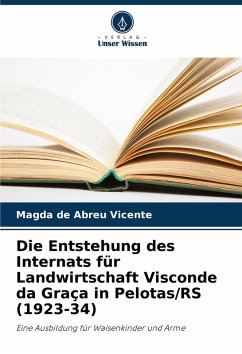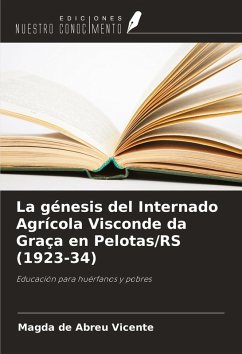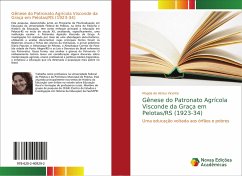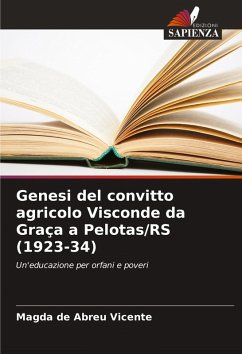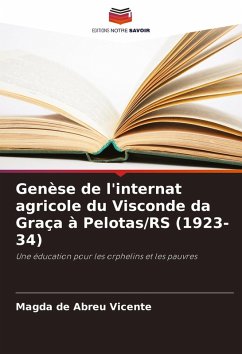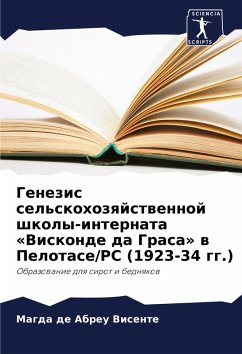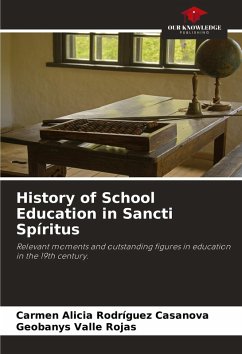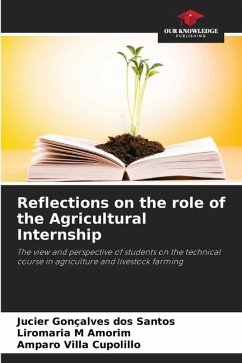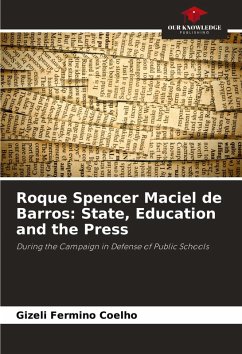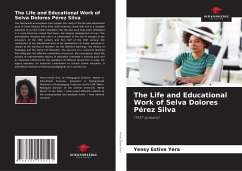
Genesis of the Visconde da Graça Agricultural Boarding School in Pelotas/RS (1923-34)
An education for orphans and the poor
Versandkostenfrei!
Versandfertig in 6-10 Tagen
24,99 €
inkl. MwSt.

PAYBACK Punkte
12 °P sammeln!
This research, carried out at the Postgraduate Programme in Education at the Federal University of Pelotas, in the area of Philosophy and History of Education, focuses on education in Pelotas-RS at the beginning of the 20th century, specifically analysing a school institution: the Visconde da Graça Agricultural Patronage. The research was carried out using a socio-historical approach and documentary analysis, the main sources of which were the institution's Annual Reports and Student Records, the Pelotas newspaper Diário Popular, the Almanaque de Pelotas, the Almanaque Correio do Povo (from ...
This research, carried out at the Postgraduate Programme in Education at the Federal University of Pelotas, in the area of Philosophy and History of Education, focuses on education in Pelotas-RS at the beginning of the 20th century, specifically analysing a school institution: the Visconde da Graça Agricultural Patronage. The research was carried out using a socio-historical approach and documentary analysis, the main sources of which were the institution's Annual Reports and Student Records, the Pelotas newspaper Diário Popular, the Almanaque de Pelotas, the Almanaque Correio do Povo (from the city of Porto Alegre/RS) and the Brazilian Laws and Decrees relating to Patronages. In this way, it aims to analyse the genesis of the Patronato. The theoretical basis took into account some discourses on agricultural modernisation, vocational education and medical-hygienist policies, and emphasised the education that was aimed at the poorest population in Brazil.





